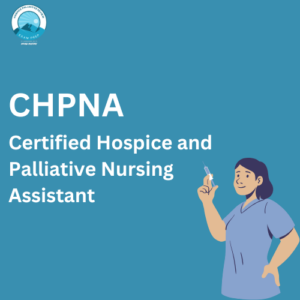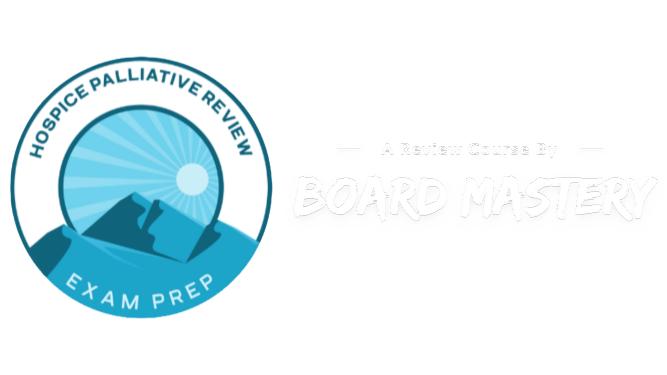
As the need for specialized hospice and palliative care grows, the importance of certifications for nursing assistants continues to grow. Certification not only prepares nursing assistants to address the complex needs of patients and families but also validates their expertise, providing them with career opportunities that align with their skills and dedication to compassionate care. Nursing assistants looking to enhance their skills, pursuing hospice certification can provide invaluable training, elevate patient care, and open new career pathways in healthcare. The Certified Hospice and Palliative Nursing Assistant (CHPNA®) credential, offered by the Hospice and Palliative Credentialing Center (HPCC), allows nursing assistants to demonstrate their specialized competencies in end-of-life care.
CHPNA® Certification Overview
The CHPNA® certification is a recognized credential that underscores a nursing assistant’s qualifications in hospice and palliative care. Attaining this certification signals that a nursing assistant has met stringent criteria, solidifying their credibility as a trusted nursing assistant of end-of-life care. This credential is tailored for professionals committed to improving patients’ quality of life.
CHPNA® Exam Details
The CHPNA® exam is a structured assessment that evaluates the knowledge, skills, and competencies required for hospice and palliative care. Candidates interested in the CHPNA® credential should familiarize themselves with the exam components, including eligibility, registration, scoring, and retake policies. Below are the key exam details:
- Practice Test: Taking a practice test is a crucial step in preparation. These tests give candidates insight into the exam’s format, types of questions, and pacing. Practice tests are available through the HPCC and help nursing assistants assess their readiness.
- Eligibility Criteria: To qualify for the CHPNA® exam, candidates must meet specific experience requirements. Candidates must have experience in hospice or palliative settings with 500 hours in the last 12 months or 1,000 hours in the last 24 months under the supervision of a RN.
- Exam Outline: The exam covers various aspects of hospice and palliative care, such as patient care, and end-of-life support. Understanding the content areas and competencies is essential for focused studying.
- Registration Process: Candidates can register for the CHPNA® exam online through the HPCC website. Registrants can choose between in-person or remote proctoring when taking the exam, allowing for flexibility based on personal preference and accessibility.
Preparation for the CHPNA® Exam
Effective preparation is the foundation of success on the CHPNA® exam. Candidates should consider the following strategies:
- Study Tips: Establish a consistent study schedule. Focus on high-priority topics.
- Resources: The HPCC offers numerous resources, including handbooks, guides, and sample questions.
- Continuing Education: Numerous continuing education courses focus on hospice and palliative care. These courses enhance a nursing assistant’s foundational knowledge and ensure they stay current on best practices in patient care.
CHPNA® Exam Fees and Testing Options
Fees for the CHPNA® certification vary, with options for Hospice and Palliative Nurses Association (HPNA) members and non-members. Financial assistance and accommodations are available for eligible candidates.
Conclusion
Hospice certification for nursing assistants equips caregivers with the skills and credentials needed to provide exceptional end-of-life care. By earning this certification, nursing assistants can become integral members of hospice care teams, providing comfort and quality to patients in need.
CHPNA® FAQs
Q: What does a nursing assistant do for hospice?
A: Hospice nursing assistants provide essential support, assisting patients with daily living tasks, personal hygiene, and emotional comfort. They work alongside nurses and healthcare providers to enhance the quality of life for terminally ill patients.
Q: How long is CHPNA® certification valid?
A: Certification is not a one-time process; aides must renew their certification every 4 years. To maintain your CHPNA® certification, you are required to retake and pass the CHPNA® exam before your certification expires.
Q: What is ACHPN® certification?
A: The Advanced Certified Hospice and Palliative Nurse (ACHPN®) certification is for nurses with advanced practice credentials.
Q: What is CHPN® certification?
A: Certified Hospice and Palliative Nurse (CHPN®) certification is for Registered Nurses (RNs) specializing in hospice and palliative care, validating their proficiency in end-of-life care.
Q: What is the difference between CHPNA®, CHPN®, and ACHPN® certifications?
A: The CHPNA®, CHPN®, and ACHPN® certifications represent different levels of expertise and roles within hospice and palliative care, tailored to distinct disciplines in nursing. Here’s how they differ:
- CHPNA® focuses on direct patient care for nursing assistants.
- CHPN® is for RNs providing professional nursing care and symptom management.
- ACHPN® is for APRNs, such as a NP or a CNS delivering advanced clinical care, including diagnosis and treatment planning.
Q: What exam preparation resources are available at HospicePalliativeReview.com?
A: We provide comprehensive study materials and practice questions tailored specifically for the Certified Hospice and Palliative Nurse (CHPN®) and Advanced Certified Hospice and Palliative Nurse (ACHPN®) exams.
Q: Who can benefit from these resources at HospicePalliativeReview.com?
A:
- CHPN® Candidates: Registered Nurses seeking certification to validate their expertise in hospice and palliative care.
- ACHPN® Candidates: Advanced Practice Nurses aiming for advanced certification in hospice and palliative nursing.
